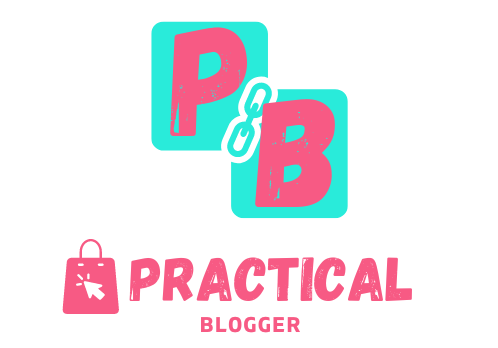Disclaimer: This post may contain affiliate links, meaning we may receive a commission at no extra cost to you if you make a purchase. See our full disclosure here: Affiliate Disclosure.
Discover the secrets of off-page SEO to enhance your website’s online presence. This comprehensive guide provides actionable tips and strategies to improve your site’s rankings and drive more organic traffic.
In the ever-evolving landscape of search engine optimization (SEO), off-page SEO has become an integral part of the game. While on-page SEO focuses on optimizing your website’s content and structure, off-page SEO extends beyond your site to establish authority, credibility, and trust in the eyes of search engines like Google.
- Chapter 1: Understanding Off-Page SEO
- Chapter 2: Off-Page SEO Strategies
- Chapter 3: Off-Page SEO Best Practices
- Chapter 4: Measuring Off-Page SEO Success
- Chapter 5: Common Off-Page SEO Mistakes to Avoid
- Off-page SEO: Overview
Off-page SEO encompasses a wide array of strategies and techniques that involve building your website’s reputation, authority, and visibility on the internet. These efforts are essential to boost your website’s rankings in search engine results pages (SERPs) and drive organic traffic. In this comprehensive guide, we’ll delve deep into the world of off-page SEO, providing you with actionable tips and strategies to elevate your website’s online presence.
Chapter 1: Understanding Off-Page SEO
What Is Off-Page SEO?
Off-page SEO, also known as off-site SEO, refers to all the activities that you perform outside of your website to improve its search engine rankings and visibility. Unlike on-page SEO, which deals with optimizing your website’s content, structure, and HTML elements, off-page SEO focuses on building external signals that tell search engines your site is authoritative and relevant.
The Importance of Off-Page SEO
Off-page SEO plays a crucial role in determining your website’s overall SEO success. Search engines, particularly Google, use off-page factors as indicators of a website’s trustworthiness, relevance, and authority.
Benefits of SEO
By investing time and effort into off-page SEO, you can achieve the following benefits:
- Higher Search Engine Rankings: Quality backlinks and a strong online presence can significantly boost your website’s rankings in SERPs.
- Increased Organic Traffic: Improved rankings translate to more organic traffic, reducing your reliance on paid advertising.
- Enhanced Credibility: Off-page SEO activities can help establish your website as an authoritative source in your niche or industry.
- Better User Experience: Higher rankings and trustworthiness lead to increased user trust and engagement.
Chapter 2: Off-Page SEO Strategies
1. Quality Backlinks
Backlinks, also known as inbound or incoming links, are links from other websites that point to your site. Google views backlinks as a vote of confidence in your content and considers them a key off-page SEO factor. However, not all backlinks are created equal.
Actionable Tips for Building Quality Backlinks:
- Guest Posting: Contribute high-quality guest posts to authoritative websites in your niche.
- Broken Link Building: Identify broken links on relevant websites and offer your content as a replacement.
- Collaborate with Influencers: Partner with influencers to promote your content and gain backlinks from their followers.
- Create Shareable Content: Craft valuable, shareable content that naturally attracts backlinks.
- Monitor Competitors: Analyze your competitors’ backlink profiles and seek opportunities to replicate or surpass them.
2. Social Media Engagement
Engaging with your audience on social media platforms can indirectly benefit your off-page SEO efforts. While social signals (likes, shares, comments) themselves are not direct ranking factors, they can boost your website’s visibility and drive more traffic.
Actionable Tips for Effective Social Media Engagement:
- Create and share valuable content regularly on social media platforms.
- Interact with your audience by responding to comments and messages promptly.
- Use relevant hashtags to increase the discoverability of your content.
- Collaborate with influencers and industry leaders for social media partnerships.
- Share user-generated content and encourage your audience to participate.
3. Online Branding and Reputation Management
Building a strong online brand and managing your reputation are crucial aspects of off-page SEO. A positive online reputation can lead to increased trust among users and search engines.
Actionable Tips for Online Branding and Reputation Management:
- Consistently deliver high-quality products or services to your customers.
- Encourage satisfied customers to leave positive reviews on review sites and Google My Business.
- Monitor and respond to customer reviews, addressing concerns and feedback.
- Optimize your online profiles (social media, directories, Google My Business) with accurate information and engaging visuals.
- Develop and maintain a professional and consistent brand image across all online platforms.
4. Content Marketing
Content marketing is not limited to on-page efforts; it also plays a significant role in off-page SEO. Creating valuable, shareable content can attract natural backlinks and social engagement.
Actionable Tips for Effective Content Marketing:
- Identify your target audience’s pain points and interests to create content that resonates with them.
- Publish informative blog posts, infographics, videos, and other content formats regularly.
- Promote your content through email marketing, social media, and outreach to industry influencers.
- Share your content on content syndication platforms, such as Medium and LinkedIn.
- Collaborate with other websites to publish and promote guest posts.
5. Local SEO
For businesses targeting a local audience, off-page SEO plays a significant role in local search rankings. Local SEO strategies aim to increase your website’s visibility in local search results.
Actionable Tips for Local SEO:
- Create and optimize your Google My Business listing with accurate information, images, and reviews.
- Build local citations by ensuring consistent NAP (Name, Address, Phone Number) across online directories.
- Encourage customers to leave reviews on Google My Business and other relevant review platforms.
- Participate in local events and sponsorships to build local connections and earn backlinks.
Chapter 3: Off-Page SEO Best Practices
1. Natural Link Building
While backlinks are crucial for off-page SEO, it’s essential to emphasize the importance of natural link building. Google’s algorithms are designed to detect and penalize manipulative link-building tactics. Focus on earning links naturally through valuable content and relationships with others in your industry.
2. Diversify Anchor Text
When optimizing anchor text (the text that contains the link), diversify it to avoid over-optimization, which can raise red flags for search engines. Use a mix of branded, keyword-rich, and generic anchor text to create a natural link profile.
3. Quality over Quantity
Quality always trumps quantity when it comes to backlinks. A few high-quality, authoritative backlinks can have a more significant impact than numerous low-quality ones. Focus on building relationships with reputable websites in your niche.
4. Monitor Your Backlink Profile
Regularly monitor your website’s backlink profile to identify and address any toxic or spammy backlinks. Google’s Disavow Tool can help you disavow harmful links that could negatively affect your rankings.
5. Stay Up-to-Date with Algorithm Changes
Search engines frequently update their algorithms. Stay informed about algorithm changes and adjust your off-page SEO strategies accordingly. Following reputable SEO news sources and forums can help you stay ahead of the curve.
Chapter 4: Measuring Off-Page SEO Success
1. Track Your Backlinks
Utilize backlink analysis tools like Ahrefs, Moz, or SEMrush to monitor your backlink profile. Keep an eye on new backlinks, lost backlinks, and changes in your overall backlink quality.
2. Monitor Keyword Rankings
Regularly check your keyword rankings in search engine results pages. Improvements in off-page SEO should result in higher rankings for your target keywords.
3. Analyze Organic Traffic
Use web analytics tools like Google Analytics to track your website’s organic traffic. Increased organic traffic is a strong indicator of off-page SEO success.
4. Assess Social Signals
Monitor your social media engagement metrics, including likes, shares, and comments. An uptick in social signals can indicate improved off-page SEO efforts.
Chapter 5: Common Off-Page SEO Mistakes to Avoid
1. Buying Backlinks
Avoid purchasing backlinks from shady sources. Paid backlinks violate search engine guidelines and can lead to severe penalties, including lower rankings and deindexing.
2. Spammy Guest Posting
Guest posting can be an effective off-page SEO strategy, but avoid spammy, low-quality guest posting on irrelevant or low-authority websites. Focus on quality and relevance.
3. Neglecting Your Online Reputation
Your online reputation matters. Ignoring customer reviews, failing to address negative feedback, or allowing inaccurate information on your online profiles can harm your off-page SEO efforts.
4. Over-Optimizing Anchor Text
As mentioned earlier, over-optimizing anchor text can raise red flags with search engines. Avoid using the same keyword-rich anchor text excessively.
5. Neglecting Mobile Users
With the increasing use of mobile devices, it’s crucial to ensure that your website is mobile-friendly. Neglecting mobile users can result in a high bounce rate and negatively impact your SEO.
Off-page SEO: Overview
Mastering off-page SEO is essential for improving your website’s visibility, authority, and rankings in search engine results pages. By implementing the strategies and best practices outlined in this guide, you can enhance your website’s online presence and drive more organic traffic.
Remember, off-page SEO is an ongoing process that requires dedication and patience. Regularly monitor your backlink profile, keyword rankings, and social signals to assess your progress. Avoid common off-page SEO mistakes, such as buying backlinks and neglecting your online reputation, to maintain a strong and sustainable off-page SEO strategy.
With a well-executed off-page SEO plan, you can establish your website as a trusted and authoritative source in your niche, ultimately driving more organic traffic and achieving long-term success in the world of SEO.
Start Implementing Off-Page SEO Today!
Ready to take your website’s off-page SEO to the next level? Start implementing these strategies today and watch your rankings soar. If you have any questions or need assistance with your SEO efforts, feel free to reach out to us. Your success is our priority!
You might also like:
- GoHighLevel Snapshots for Sale: A Buyer’s Guide
- How to Create Snapshots in GoHighLevel to Save Time and Streamline Your Workflow
- GoHighLevel Login Tips and Tricks: The Ultimate Guide
- How to Use GoHighLevel to Grow Your Business
- How to Become a GoHighLevel Top Affiliate and Earn Passive Income
- GoHighLevel Pricing Plans: A Comprehensive Guide
- GoHighLevel Support: Get Help 24/7
- Related Reading: Why Start a Blog: Purpose and Benefits
- Related Reading: How Blogging Can Help You Discover Your Passion and Life Purpose
- Related Reading: How to Find Motivation to Start a Blog
- Related Reading: Identifying Personal and Professional Goals for Your Blog







